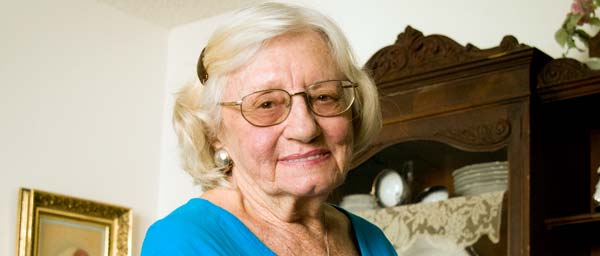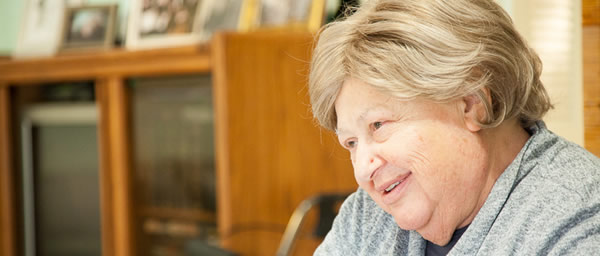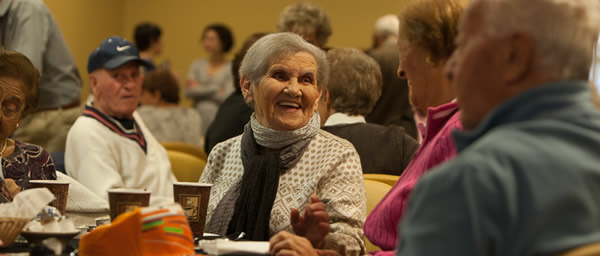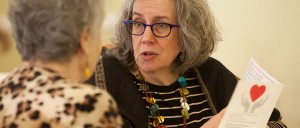Elyse Jacobson Palm Beach Gardens Fl
Helping Holocaust Survivors in Florida

Providing Holocaust Survivors in Florida With Needed Care
Sandor and Katherine Tambor survived the horrors of the Holocaust incarcerated in Nazi concentration camps. Now living in Florida, they say that they can remain safely in their own home only with the help of a Jewish social service agency in West Palm Beach, funded by the Claims Conference.
Like the Tambors, hundreds of other elderly and frail Holocaust survivors in Florida receive aid from the Claims Conference though $23 million in allocations to five Jewish social welfare agencies, including Alpert Jewish Family & Children's Service (JF&CS) in West Palm Beach. These desperately needed funds enable these organizations to provide Jewish Holocaust victims with in-home care, transportation, food, medical care, case management, emergency cash assistance and socialization programs.
With Claims Conference support, Alpert JF&CS annually assists approximately 400 Holocaust survivors in Palm Beach County and in the Jacksonville area. Claims Conference funding – $2.84 million for 2016 – is crucial in enabling Alpert to fulfill its mission of helping survivors live at home in dignity, says CEO Jenni Frumer.
"The impact of Claims Conference funding is absolute," she says. "We couldn't possibly provide the level or quality of care or frequency or duration of care without the Claims Conference."
Elderly Survivors, Growing Needs

And though Alpert also receives limited State of Florida funds for outreach to survivors, the unmet needs of Holocaust survivors, most of whom are in their 80s and 90s, are constantly growing. "We hear about two new clients a week, which means eight new Holocaust survivors a month that we didn't even know existed in our community," Jenni says.
Seventy percent of the residents of Palm Beach County over the age of 65 are Jewish.* And, Jenni says, the agency believes that 40 percent of those are living at or below the federal poverty level. Survivors are afraid to seek assistance of any kind, Jenni says. During the Holocaust, "if they were weak in any way, they would be annihilated. So they don't ask for help unless they really need to. The majority are afraid to ask for help or show vulnerability."
In 2015, the Claims Conference dramatically increased allocations to its Florida partner agencies, tremendously helping Alpert increase its care for Holocaust survivors. "We refuse to have a wait list" of survivors needing assistance, Jenni says. "If someone calls us we will very quickly go out and do an assessment. We will get them something, maybe a gift card for medications. So the extra money really helped infuse extra services for people who needs were not being met."
A portion of Claims Conference allocations can be used towards "exceptional hours" – homecare hours that are additional to the standard number a low-functioning survivor might typically receive. A small number of exceptional hours can make a huge difference for an elderly survivor who needs care at home.
Recently, a husband and wife, both Holocaust survivors, had a difficult problem. It was the one-year anniversary of the death of the wife's daughter from her first marriage, and the ceremony to unveil the gravestone would be in New York. The woman was desperate to go, but her husband is ill and too frail to be left alone at home. Alpert used "exceptional hours" funding to provide this man with additional homecare help, so his wife could attend the unveiling ceremony at her daughter's grave.
"Having the ability for exceptional hours has been critical to keeping people at home," says Alpert's chief program officer Elyse Jacobson. "This woman can go with peace of mind and know her husband is being taken care of. In the past, we might not have been able to do that. We wouldn't have had the possibility without the Claims Conference funding for exceptional hours."
Holocaust Survivors in Florida Get Needed Homecare
The Tambors, Holocaust survivors from Hungary, live in a small apartment in a large over-55 community in West Palm Beach. Sandor, now 94, was in his early 20s when he was deported to the Landsberg-Kaufering slave-labor camp, part of the Dachau concentration camp complex. Katie, now 88, was almost 17 when she was deported to Auschwitz with her family. When they immigrated to the U.S., Katie graduated from college and graduate school; she worked as a kindergarten and first-grade teacher in New York City for decades.
Alpert JF&CS has had a social worker checking in on the Tambors for several years. But recently, their health has started to deteriorate – Katie has had several bad falls, and Sandor developed edema and now walks with two canes. The couple, who have prided themselves on their independence, finally acknowledged they need help. They are grateful for the homecare aide who helps Sandor put on support socks, and steadies Katie as she walks around the apartment. "Alpert goes out of their way to help those who need help," Sandor states. "If it wasn't for the organization, we wouldn't have it."
Social Gatherings Help Survivors

Alpert holds several socialization programs around the county for survivors every month. For many local Holocaust survivors, this monthly get-together is the only time they see each other. These programs "are therapeutic because it validates that they are amongst many who survived," Jenni says. "That Hitler didn't win. That regardless of their experience they're among others who experienced the trauma of being displaced and having their lives forever changed. And they are in a trusted place."
In addition, case managers use the time at social events to check in on survivors. It's a crucial way to talk with their clients in a relaxed setting. For example, a case manager found out at a monthly gathering that a survivor's refrigerator was leaking and wasn't keeping food cold. Now, knowing this information, Alpert has arranged a new refrigerator for her.

Along with Alpert JF&CS, which also provides in-home services to Holocaust survivors in the Jacksonville area, four other agencies are partnered with the Claims Conference to provide care to Holocaust survivors in Florida: Gulf Coast Jewish Family and Community Services in Clearwater; Jewish Community Services of South Florida in North Miami; Jewish Family Service of Broward County in Plantation; and Ruth & Norman Rales Jewish Family Services in Boca Raton. In 2016, these five agencies are receiving a total of $23 million from the Claims Conference.
Alpert's work only grows as Palm Beach County Holocaust survivors become frailer as they age, Jenni says. "The lack of services in Southeast Florida means that we as a state are not caring for the needs of our most vulnerable populations. Given the median age of Holocaust survivors, the needs of this unique population are growing."
*From the 2006 Jewish Demographic Study conducted by the Jewish Federation of Palm Beach County.
Photos by Jason Rogers
Source: https://www.claimscon.org/regions/north-america/united-states/florida/helping-holocaust-survivors-florida/
0 Response to "Elyse Jacobson Palm Beach Gardens Fl"
Post a Comment